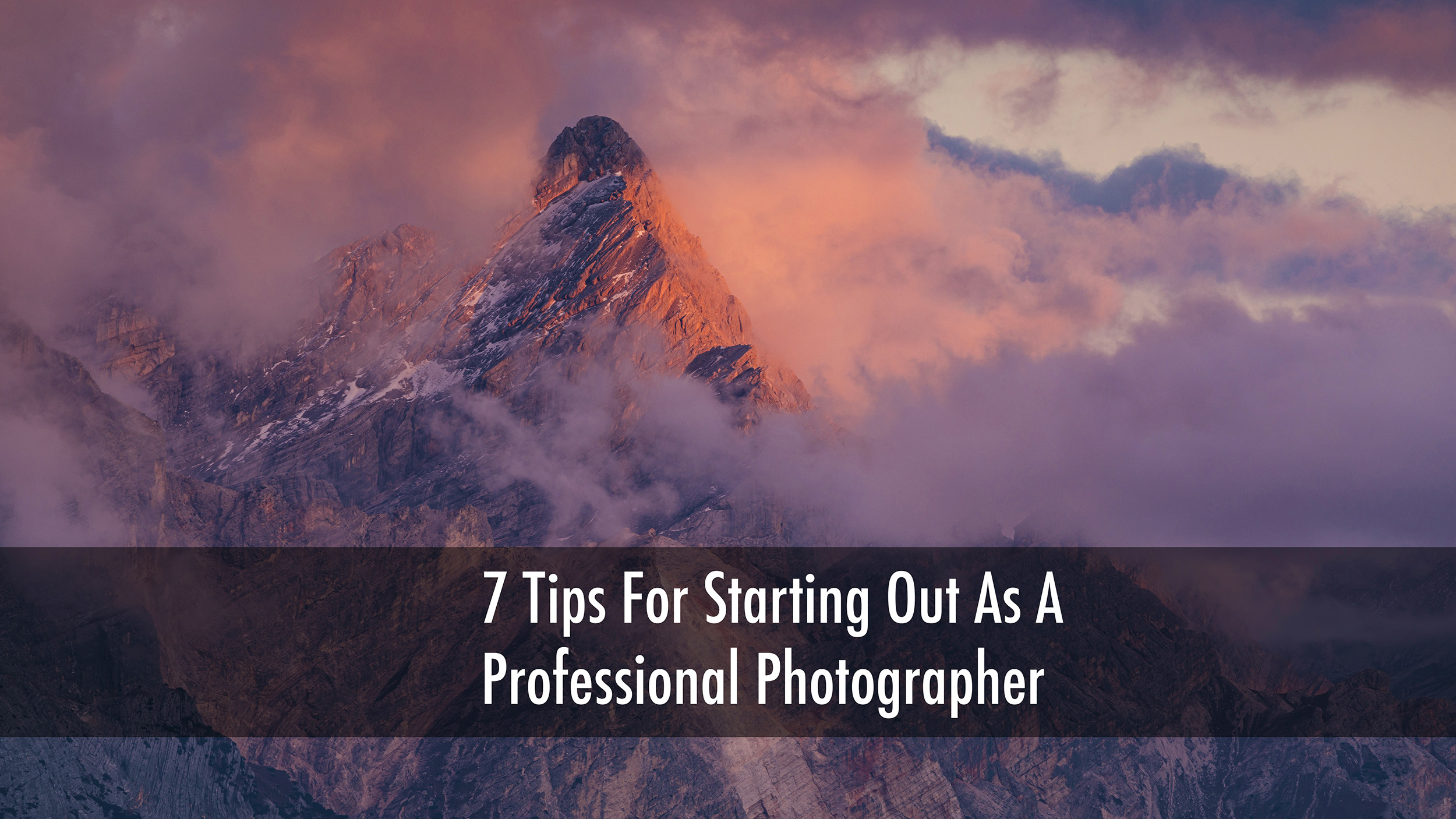
Starting Out as a Professional Photographer
Becoming a professional photographer can be an exciting journey, whether you want to focus on landscapes, travel, or any other style. Here are 7 tips for starting out as a professional photographer to keep in mind as you work toward your photography goals.
It’s tempting to chase after famous photographers on platforms like Instagram or YouTube, trying to gain their favour. However, this approach can backfire. It’s crucial to remember your roots and the people who helped you along the way. Treat everyone with respect as you grow in your career. When you need assistance later, those relationships will matter.
While social media can help you gain visibility, it’s not the key to long-term success. Many successful professional photographers don’t focus on their online presence at all. The real foundation lies in your hard work, professional portfolio, and how you treat clients.
Building a good reputation in the field is far more impactful than simply collecting likes or followers.
Relying solely on one source of income stream can be extremely risky. For instance, during the COVID-19 pandemic, many photographers who depended on platforms like YouTube faced financial difficulties. To avoid this, explore different income options: commission work, magazine features, stock photography, and more. By creating multiple income streams, you can safeguard your career against unexpected downturns.
Many photographers obsess over the latest equipment. However, top-notch gear does not define your success. What truly matters is your skill and creativity as a photographer. A well-loved camera with a lot of use can still produce stunning images. Concentrate on improving your photography techniques instead of chasing the latest models.
My Canon 5D Mark II had over 500,000 accuations on it when I sold it. It was an absolute solid workhorse that did its job with aplomb.
If you listen to certain photographers they’ll tell you that you need the latest and greatest 70 megapixel camera. If you actually look at what these people are doing then it’s probably just posting on social media. They don’t need the megapixels.
The debate over megapixels can be misleading. For most photographers, higher megapixels don’t translate to better images. A solid example is a photograph I took with a 21-megapixel camera that was commissioned by Visit Britain. I remember walking off a flight in Birmingham Airport and saw the image on the wall. It had been enlarged considerably and you definitely didn’t see any degradation in quality. For everyday photography—like portraits or event coverage— 20 megapixels are often more than enough.
Always look for ways to enhance your photography skills. If landscape photography is your focus, try exploring urban photography or portrait work. Broadening your skill set makes you a more versatile and valuable photographer. Consider diving into editing software, lighting techniques, or even exploring different photography styles. This growth will pay off when it comes to attracting clients.
Many people mistakenly believe they can master photography quickly. In reality, photography is a lifelong journey of learning. Just as in martial arts, you will never reach a final destination and never truly master it. The pursuit of improvement keeps the passion alive. Always seek knowledge and experiences to evolve as a professional photographer.
In conclusion, becoming a professional photographer takes dedication and careful thought. By avoiding social climbing, embracing hard work, diversifying income, focusing on skill over gear, and continuously improving, you can build a successful career.
Remember, it’s not just about the equipment you have but how you use it. Keep an open mind and enjoy the journey.